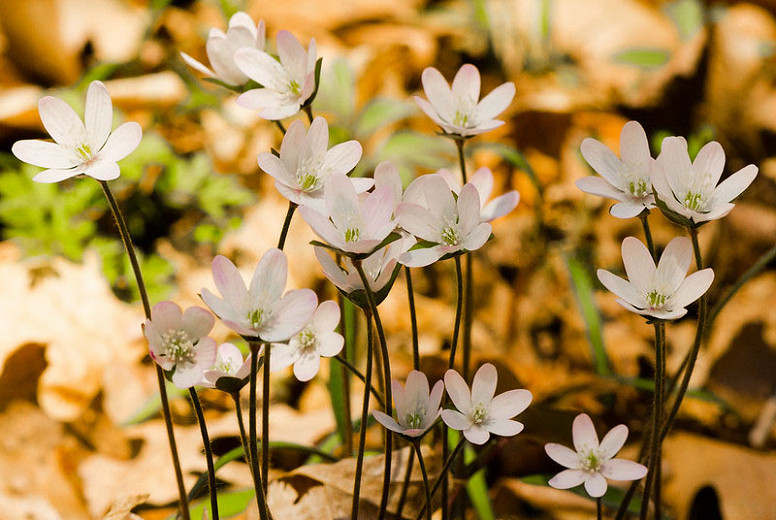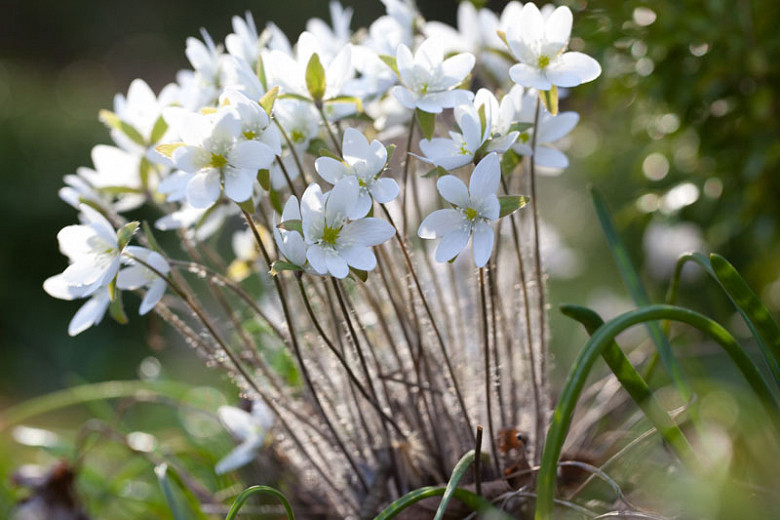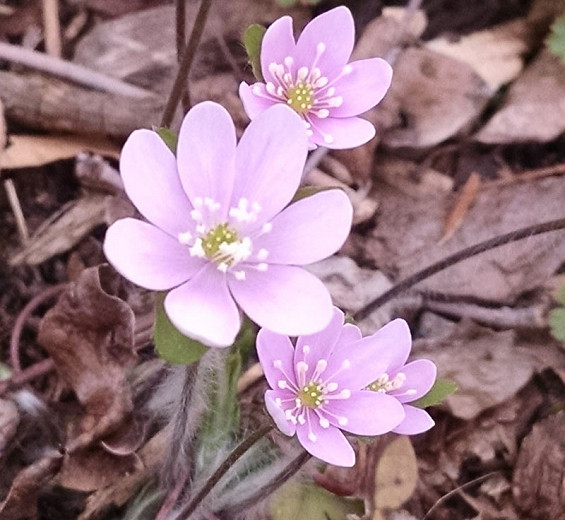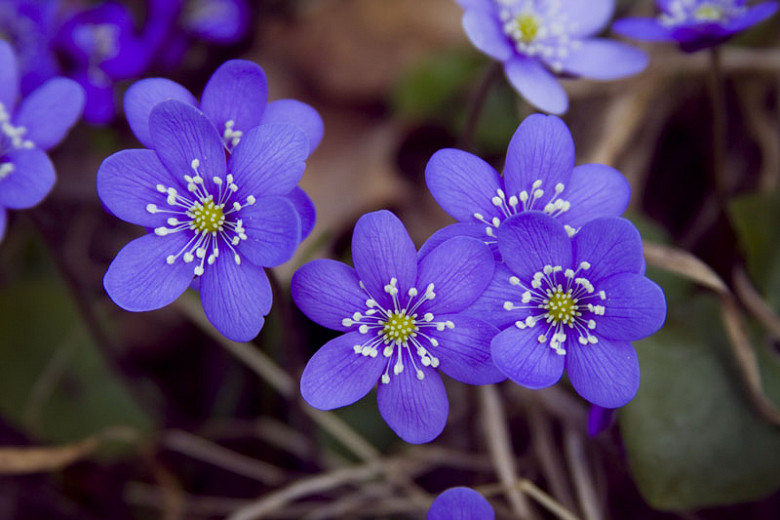Hepatica nobilis var. acuta (Sharp-Lobed Hepatica)
A welcomed harbinger of spring, Hepatica nobilis var. acuta (Sharp-Lobed Hepatica) is a low-growing semi-evergreen perennial boasting charming white, pink or purple flowers, 1 in. across (2.5 cm), with conspicuous white stamens in early to mid-spring. The dainty flowers appear before the new leaves on fuzzy reddish stems. They open their fullest on sunny days and stay open for about 2-3 weeks. Small bees collect pollen from the flowers, while Syrphid flies and other flies feed on the pollen. The leathery leaves are three-lobed, pointed, and sometimes evergreen until the following spring. Native to eastern North America, Sharp-Lobed Hepatica is a popular woodland perennial, bursting with color when it is most needed, a jewel in the stark landscape. A wonderful little plant that will warm your heart. Great for a woodland or shady rock garden.
- Grows up to 4-6 in. tall (10-15 cm) and 6-8 in. wide (15-20 cm). This plant spreads by reseeding itself.
- Easily grown in humus-rich, moist, slightly alkaline, well-drained soils in part shade. Top dress annually in autumn with leaf mold. Resent root disturbance.
- Undemanding, this Hepatica is a welcomed addition to beds and borders, under shrubs and roses, as an edging plant, in city gardens, cottage gardens, rock gardens, woodland gardens, or in containers. For best visual impact, plant en masse.
- No serious pest or disease issues. Keep an eye out for slugs and snails.
- Propagate by seed or division in the fall. Seeds should be planted outside immediately after collection. Seeds require cold treatment for optimum germination
- Native to eastern North America.
Requirements
| Hardiness | 3 – 7 |
|---|---|
| Climate Zones | 1, 1A, 1B, 2, 2A, 2B, 3, 3A, 3B, 4, 5, 6, 14, 15, 16, 17 |
| Plant Type | Perennials |
| Plant Family | Hepatica – Liverleaf |
| Exposure | Partial Sun |
| Season of Interest | Spring (Early,Mid) |
| Height | 4" – 6" (10cm – 15cm) |
| Spread | 6" – 8" (15cm – 20cm) |
| Spacing | 8″ (20cm) |
| Water Needs | Average |
| Maintenance | Low |
| Soil Type | Chalk, Clay, Loam, Sand |
| Soil pH | Alkaline, Neutral |
| Soil Drainage | Moist but Well-Drained |
| Characteristics | Showy, Semi-Evergreen |
| Native Plants | United States, Midwest, Illinois, Indiana, Iowa, Michigan, Minnesota, Missouri, Ohio, Wisconsin, Northeast, Connecticut, Delaware, Maine, Massachusetts, Maryland, New Hampshire, New York, Pennsylvania, Vermont, Southeast, Alabama, Arkansas, Georgia, Kentucky, Mississippi, North Carolina, South Carolina, Tennessee, Virginia, West Virginia |
| Attracts | Bees |
| Garden Uses | Beds and Borders, Edging, Patio and Containers, Underplanting Roses and Shrubs |
| Garden Styles | City and Courtyard, Gravel and Rock Garden, Informal and Cottage |



